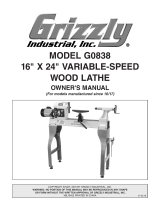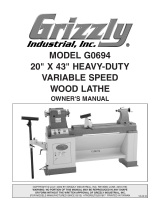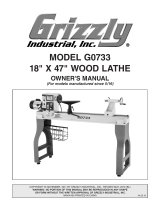Page is loading ...

Specifications
• 6-digit digital lock
• 1
1
⁄4" chrome-plated door bolts
• Storage slots for 22 rifles or shotguns
• 3 interior shelves, 3 adjustable
• Fire rated at 1700° F for 60 minutes
• Overall dimensions: 59"H x 30"W x 24"D
• Shipping weight: 552 lbs.
• Manufacturer default code: 1-2-3-4-5-6
• Mounting hole size:
1
⁄2"
1. Install door handwheel spokes.
2. Push bottom of digital keypad up and remove
from safe.
3. Install 9V alkaline battery into back of digital
keypad. Take care not to pull and damage the
wires.
• Never allow anyone to be locked inside
safe—suffocation may occur!
• Do not climb or stand on safe—it could
tip and cause serious personal injury.
• Anchor safe to floor (see back page) to
prevent tipping or theft.
Tech Support: (360) 676-3299 • Email: service@bullets.com • Web: www.bullets.com
BE1157
Gun Safe 59" x 30" x 24"
Instructions
COPYRIGHT © OCTOBER, 2014 BY BALD EAGLE INTERNATIONAL, INC. (BB)
WARNING: NO PORTION OF THIS MANUAL MAY BE REPRODUCED IN ANY SHAPE OR FORM WITHOUT
THE WRITTEN APPROVAL OF BALD EAGLE, INC.
PHONE: (800) 235-0272 • EMAIL: [email protected] • BE1157 • PRINTED IN CHINA • V1.10.14
Assembling Safe
Figure 1. Model BE1157 Bald Eagle Gun Safe.
Combination
Door
Handwheel
Digital
Keypad
Figure 2. 9V Battery Installation.
4. Place digital keypad onto mounting posts,
and push downward to secure.
5. Test lock with door open by entering manu-
facturer default combination: 1-2-3-4-5-6.
6. Turn handwheel clockwise, and verify door
bolts retract.
7. Turn handwheel counterclockwise, and
verify door bolts engage.

-2-
BE1157 Gun Safe
Maintenance
Clean the surfaces of the safe with a slightly damp
cloth.
If the hinges develop a squeak, apply one or two
drops of light machine oil to the hinge contact
points.
If the digital lock beeps eight times, this indicates
the 9V battery is low. Please replace the battery
immediately. Otherwise, replace once per year.
NOTICE
Keep these instructions with included com-
bination in a separate secure location from
safe. Misplacing or forgetting combination
will render the safe unusable. Bald Eagle
International cannot replace lost combina-
tions.
Verify that floor area to be drilled is free
of electrical wires, gas lines, water lines,
sewer lines, etc. Drilling into these items
unintentionally can cause electric shock,
fire, or property damage.
Anchoring Your Safe
Anchoring the safe to the floor reduces the risk
of tipping and makes theft of the entire safe
extremely difficult. The safe can be anchored to
any surface, but wood and concrete are the most
common.
Before anchoring the safe, all shelves, wall
boards, and support braces must be removed to
expose the anchoring holes in the bottom of the
safe. Holes can generally be drilled with the safe
in-place, depending on the size and shape of the
drill used.
If you enter an invalid code four consecutive times,
the digital lock begins a 5 minute wait period.
While in wait period:
• The digital lock will beep in 5 second inter-
vals.
• The digital keypad will not accept input.
• Removal of the battery stops the countdown
but will not reset the wait period.
Invalid Entry Wait PeriodChanging Digital Lock Code
Perform all of the following steps with the safe
door open. Failure to do so could result in the safe
becoming inoperable.
After the completion of each step, the safe will
beep the indicated number of times to confirm the
operation was valid.
Note: If three beeps sound the procedure was
unsuccessful. Repeat Steps 1–4.
To Change Digital Lock Code:
1. Enter "0" six times. Two beeps will sound.
2. Enter existing six digit code. Two beeps will
sound.
3. Enter new six digit code. One beep will
sound.
4. Enter new six digit code again. One beep will
sound.
.
5. Verify new code at least three times by clos-
ing and opening the handwheel before lock-
ing safe.
6. Write down combination in space provided.

BE1157 Gun Safe
-3-
Bolting to Wood Floors
Lag screws and flat washers are typically used
to bolt safes to wood floors (or floors with a wood
sub-floor).
Installation of lag screws works best if holes are
pre-drilled to accommodate the lag screws. A stan-
dard handheld power drill with the appropriate-
sized wood drill bit is required to complete the job.
To ensure strong and successful anchoring to
wood:
• Pre-drill holes at the correct size for the lag
screws. The correct pre-drill size is always
smaller than the lag screw size. (For exam-
ple, a
7
⁄32" bit is used to pre-drill holes for a
3
⁄8"
lag screw.)
• Use at least a 2" long lag screw.
• For additional strength, fasten at least two of
the screws into floor joists.
Anchoring to Concrete Floors
Lag shield anchors are generally recommended
because they mount flush with the floor and allow
the safe to be bolted down with a lag screw and
flat washer. Ensuring that the lag shield anchors
are flush with the floor aids in the ease of move-
ment at a later time.
To ensure strong and successful anchoring to
concrete:
• Drill holes in one pass and avoid raising the
bit up and down to clear the dust, which may
cause the holes to become slightly over-
sized.
• Drill holes
1
⁄2"–1" deeper than the length of
the lag shield to allow room for the bottom of
the screw and any remaining dust.
• Vacuum dust from holes before installing lag
shields.
Safe
Concrete
Lag Screw
Lag Shield Anchor
Flat Washer
Drilled Hole
Safe
Floor
Lag Screw
Flat Washer
Installation of lag shield anchors requires you to
drill holes into the concrete. Drilling into concrete
properly requires a hammer drill with an appropri-
ate-sized concrete drill bit.
Figure 4. Bolting to wood floors.
Figure 3. Anchoring to concrete floors.
/







